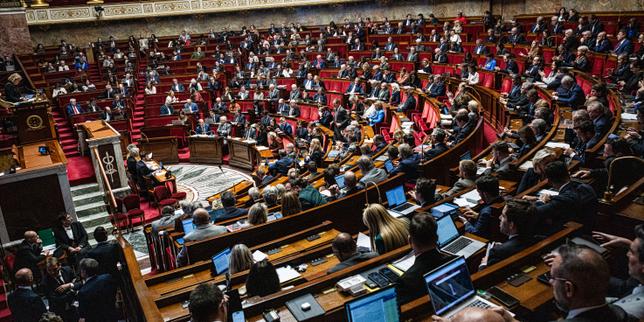French National Assembly Resumes 2026 Budget Review Amid Political Divisions and Fiscal Amendments
The French National Assembly resumed examination of the 2026 state budget, reviewing over 2,100 amendments amid political divisions and fiscal debates on pensions, taxes, and social support measures.
- • Examination of the 2026 budget resumed with over 2,100 revenue amendments pending.
- • Government plans to replace retirees' 10% tax deduction with a flat 2,000 euro deduction amid opposition.
- • Tax credit replacing the 'Coluche niche' approved, expanding relief to all households.
- • Political divisions evident as pension reform suspension passes with internal splits in The Republicans.
- • Left-wing tax proposals partially adopted causing government frustration but deficit target remains unchanged.
Key details
The French National Assembly resumed on Thursday the detailed examination of the 2026 state budget after a nine-day pause dedicated to the Social Security budget discussions, which notably included the suspension of the 2023 pension reform. Over 2,100 amendments remain to be reviewed for the budget's revenue section, with a vote scheduled for November 17, though its outcome remains uncertain as the entire budget must be submitted to the Senate by November 23 to meet constitutional deadlines.
A key topic under debate is the government’s proposal to replace the current 10% tax deduction on retirees' pensions with a flat deduction of 2,000 euros, expected to raise 1.2 billion euros, though there is a growing consensus against this measure. Several taxes have also drawn scrutiny, including one affecting small packages amid controversy over the e-commerce platform Shein, as well as increased fees for residence permits, which have been criticized by left-wing factions.
Additionally, the Assembly has agreed not to hold a vote on the expenditure side of the budget, instead focusing on specific priorities such as defense and sports. Left-wing parties pushed to introduce higher taxes on the wealthy, including a so-called Zucman tax, with some taxes targeting multinationals and superdividends approved, provoking government frustration described as "fiscal madness." However, Public Accounts Minister Amélie de Montchalin maintained a more balanced outlook, asserting the budget was not a "Frankenstein budget" and reaffirmed the deficit target at 4.7% of GDP.
In a separate but related amendment, deputies transformed the "Coluche niche"—a tax reduction for donations to aid organizations like Restos du cœur—into a tax credit accessible to all households, including non-taxable ones. This amendment, approved by a 110 to 78 vote, could cost public finances over 550 million euros according to critics. Left-wing coordinator Manuel Bompard emphasized the urgent need to support associations amid rising food insecurity. However, government officials including Amélie de Montchalin opposed the measure due to its fiscal impact.
These developments occur in the context of continuing political divisions, illustrated by the recent adoption of an amendment suspending the pension reform. The suspension passed with 255 votes for and 146 against, with notable internal splits within The Republicans (LR), where 25 deputies opposed and 8 supported the suspension. Former minister Bruno Retailleau criticized the decision as a "capitulation," while the Social Security budget law including the suspension has now been transferred to the Senate without full examination by deputies. This ongoing political complexity underscores the challenges facing the budget process as the Assembly continues its detailed scrutiny.
This article was translated and synthesized from French sources, providing English-speaking readers with local perspectives.
Source articles (3)
Source comparison
Latest news
France Returns the Djidji Ayôkwé Talking Drum to Côte d'Ivoire After Over a Century
Record 37 Days of Rain Triggers Ongoing Severe Flooding in Western France
Political Divisions and Social Tensions Intensify Following Quentin Deranque’s Death in Lyon
French Economy Minister Calls for Full Insurance Industry Mobilization Amid Devastating Storm Floods
France Boosts Social and Solidarity Economy with New Tools and Potential Tax Reforms in 2026
Saint-Nazaire Mayor Condemns Vandalism of Two Political Offices as Attack on Democracy
The top news stories in France
Delivered straight to your inbox each morning.


